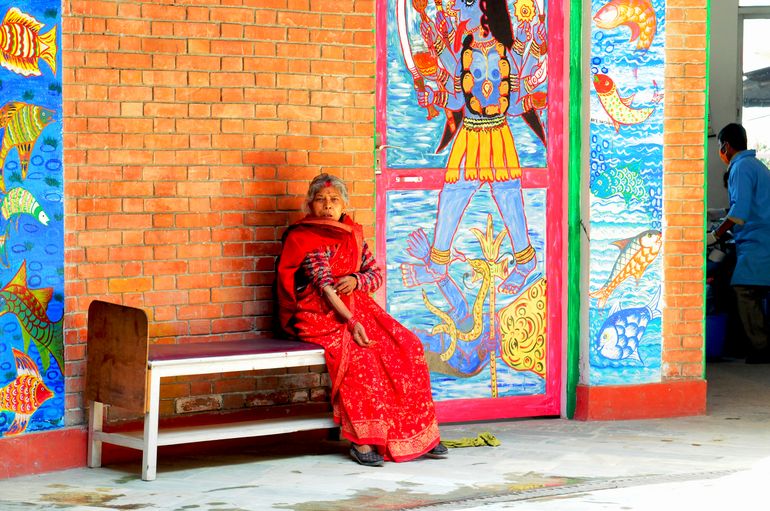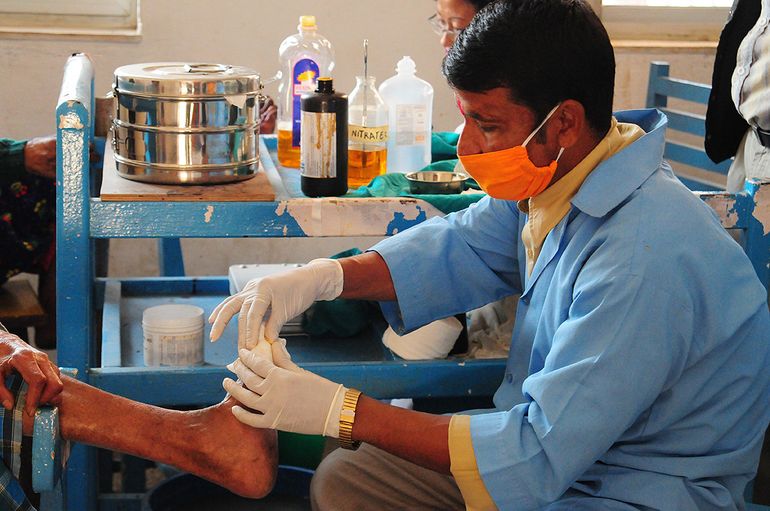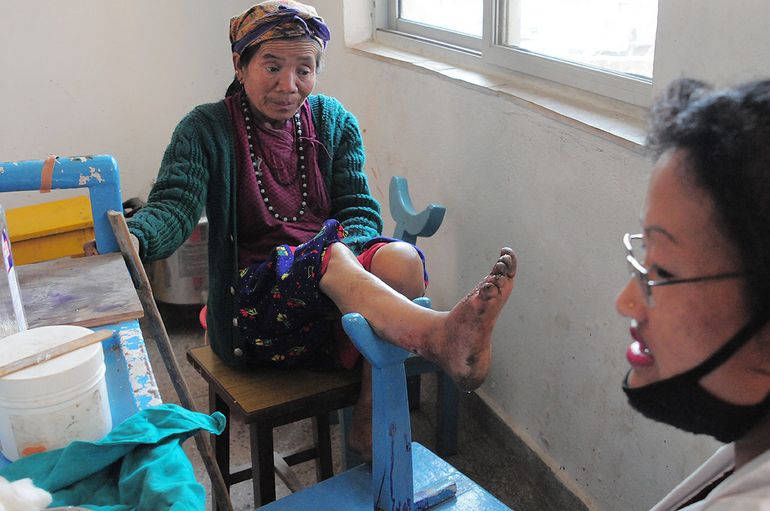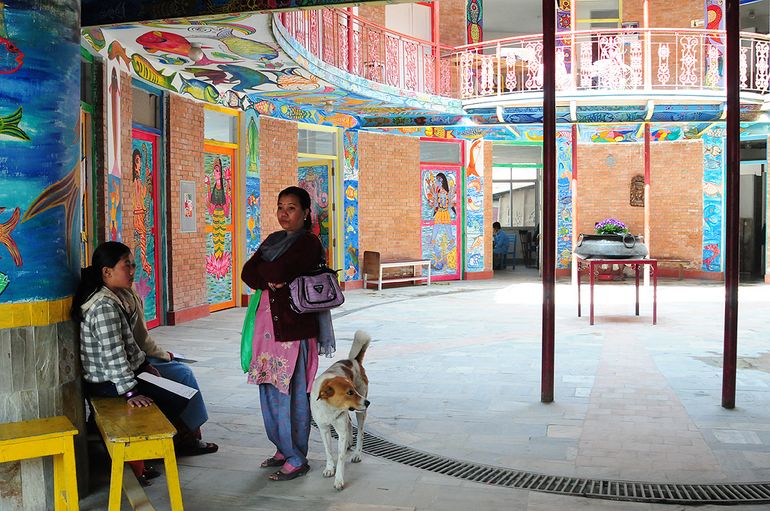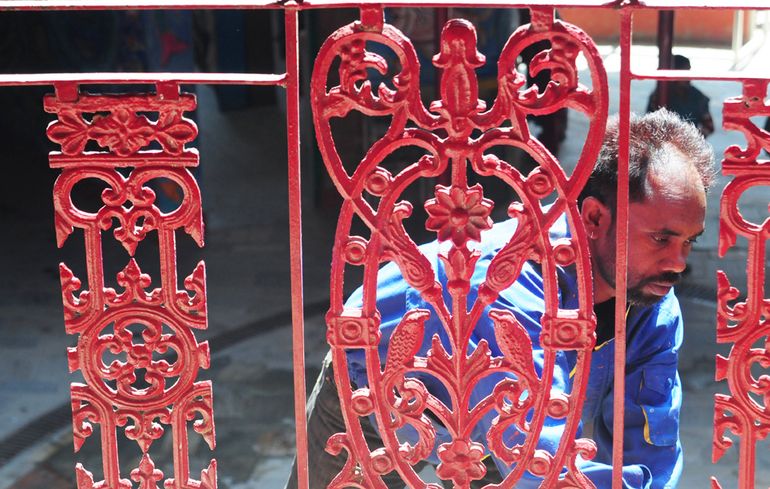DIAGNOSING DISEASES, TREATING WOUNDS
Around 100 patients each day are treated in the outpatient clinic at the Hape Kerkeling Clinic. Many come because of wounds on leprous hands and feet that must be cleaned, disinfected and dressed. One main focus of the outpatient clinic is the acute care for injured skin, especially on the feet.
Because most Nepali don't own sturdy shoes and leprosy weakens or destroys sensitivity to pain, new injuries occur constantly. With the ubiquitous filth on the streets, the wounds quickly become infected, fester and form deep abscesses. There is constant risk of serious blood poisoning.
With the proper wound care and hygiene, unnecessary amputations can be prevented that otherwise would have been unavoidable. Not to mention that untreated, festering areas are a favourite food source for rats, which have become a terrible plague in the shanty towns. This is an image that disgusts those of us in Europe, but is a part of everyday life in Nepal.
During the monsoon season, which comes during the summer months in Nepal, most people come to the outpatient clinic with diarrhoeal illnesses caused by infectious diseases like cholera, typhus, amoebic dysentery, etc. They are diagnosed and treated with medication. In addition to necessary blood, stool and urine testing, which is done at Shanti's own laboratory, all of the medical treatment is free of charge.
On every morning except Tuesdays, there is a doctor consultation time for all those in need. Those who take advantage of this pay 20 cents and receive a fixed ID number and patient file. In this way, thorough documentation is compiled so that the doctor knows about the medical history at every visit.
